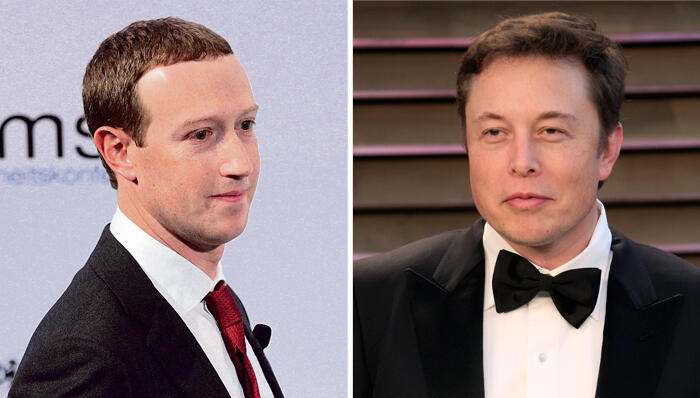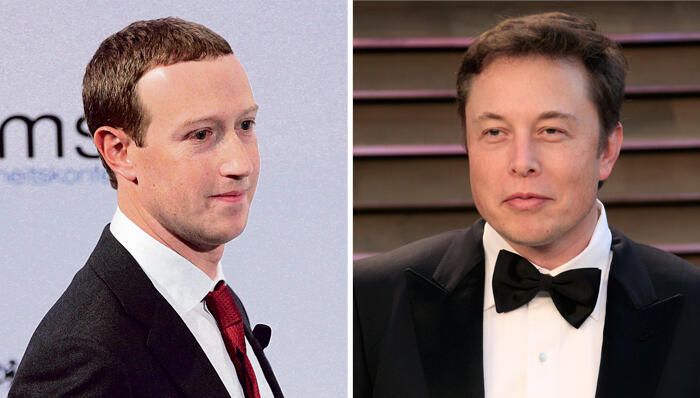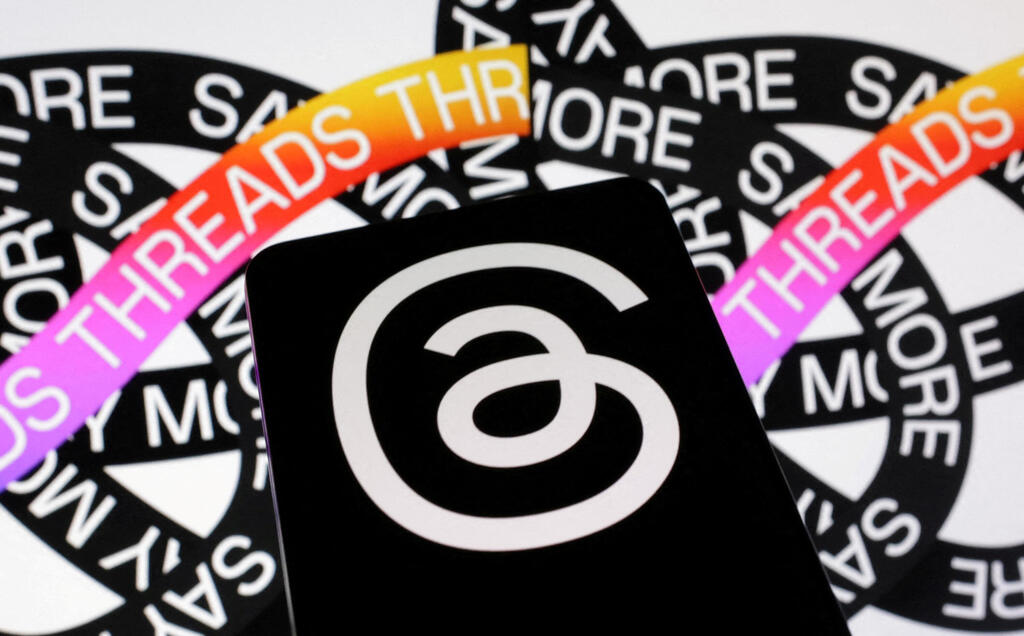
Zuckerberg vs. Musk: Meta launches Threads to compete with Twitter
In order to incentivize users to join Threads, Meta not only needs to create a successful platform, but also needs to convince Twitter users that the experience there will be much better, that they won't be subject to the arbitrary whims of a billionaire who only thinks about his bottom line, and that despite their animosity towards Zuckerberg, he is still capable of providing them with a better platform than Musk
It started as a joke: Twitter's owner (and de facto CEO), Elon Musk, claimed on the platform that he was "ready for a cage match" with Meta founder and CEO Mark Zuckerberg. Zuckerberg, a jiu-jitsu enthusiast, replied on Instagram, "send me location," and Meta representatives made it clear to the media that he was dead serious. Musk, determined to show he's also serious, has since held several training sessions with martial arts experts and MMA fighters. The prospect of a battle between the two tech billionaires is a cause for celebration for many users, with neither of them viewed with much sympathy, to say the least. No matter who loses, the internet will be happy.
A date for the physical battle between Musk and Zuckerberg has not yet been set, but today a different kind of battle has begun: a battle for revenues amounting to billions of dollars and maybe even the future of Twitter.
Today, Meta launched its alternative to Twitter, the micro-blogging platform Threads, in an attempt to further unsettle the already shaky Twitter. It hopes to create a real alternative to Twitter that will attract users and, with them, advertising revenue, and deal a significant blow to recovery efforts led by new CEO Linda Yaccarino. The determining factor in the Meta vs. Twitter showdown may come down to who users prefer - Zuckerberg or Musk.
Twitter in deep crisis while Meta recovers
Meta is launching at an ideal time: while it is enjoying a period of recovery, Twitter is in crisis, at least in the eyes of investors. 2022 was a dreadful year for Meta. The tech industry saw stocks plummet by an overall average of 33% last year, but Meta managed to stand out, losing 64% of its value. Despite such a loss, it managed to recover: in the past six months, its stock jumped by 129.2%, with a 5.4% increase in the last month. Today, Meta ranks as the eighth largest company by market capitalization, just below Musk's Tesla, whose stock rose by 153.6% in the past six months.
Threads will be officially available starting today, after being available for pre-order in Apple's app store. Its app page allows users to learn more about its functionality and the underlying strategic plan. Threads appears to operate very similarly to Twitter, with a similar user interface and activity based on short posts, threaded comments, and a chronological timeline.
Its secret weapon is Instagram. Threads is defined as an "Instagram-based text messaging app," but it will most likely operate as an independent app that leverages Instagram's popularity among young people and its more appealing reputation compared to Facebook. The goal is to quickly create a large user base rather than start from scratch. Relying on Instagram will allow platform users to use Threads with the same Instagram username, easily follow Instagram accounts they are already following, and facilitate communication between the two platforms.
The timing of the launch is by design. Zuckerberg hopes to capitalize on the turmoil at Twitter and user dissatisfaction in order to convince them to migrate to the new platform. In just the past few days, Musk stirred up a new storm on Twitter when, without notice, preparation, or much of an explanation, he limited the number of tweets a non-subscribed user can view to 600/day (later, in response to a public outcry, he increased the limit to 1,000/day).
This was the latest in a series of changes in Twitter policy that angered users, including allowing users to pay for account verification (enabling fake accounts and making it easier to spread fake news), and damage to Twitter's content monitoring system. These changes were both a result of a deliberate relaxing of policy and the cutting of teams dealing with the issue (which led to a surge in hateful content).
As a result, alternative platforms like Mastodon or Bluesky have gained considerable interest from Twitter users, but have struggled to leverage that interest to create a significant alternative. This is partly due to specific issues like the decentralized nature and non-user-friendly interface of Mastodon, as well as larger challenges like convincing users to migrate to a new platform where all social connections need to be built from scratch.
368 million Twitter users vs. 2 billion Instagram users
As of the end of 2022, Twitter had 368 million active users compared to Instagram's crossing of the 2 billion mark in 2021. A Twitter user who wants to replicate their activity on Threads probably won't need to start from scratch. Most likely, they already have an Instagram account, and their entire social network is already there, possibly even active. Instead of entering a new service and starting from scratch, in many cases, they can simply continue their activity with minimal disruption. In fact, they may discover that their social network on Threads is much broader and find many users who never joined Twitter but are already there due to the connection with Instagram.
Meta knows their potential users and can provide personalized recommendations or a tailored feed immediately upon entry. Along with powerful computing infrastructure and a robust advertising system, Threads is expected to pose a strong threat to Twitter. However, it is uncertain whether this will be enough to generate significant and long-term user migration. Meta's previous attempts to mimic rival services have seen both success and failure. The most notable failure was the launch of Poke in 2012, Zuckerberg's effort to kill Snapchat, when Snapchat refused his acquisition offer. It never gained momentum and was shut down quietly soon after. On the other hand, Meta has had decent success in copying features from rival platforms, such as Snapchat's Stories or TikTok's short videos, and integrating them into existing products.
Threads: leveraging Instagram users and disappointed Twitter users
With Threads, Meta is trying to find a middle ground: a distinct app that builds on a stronger existing platform can attract disappointed Twitter users. It's a promising start, but it may not be enough. Despite the criticism and dislike of Musk, and the changes that have affected the user experience, existing users are still active on Twitter, and in a very broad way. While there has been a decrease in usage (since Musk acquired Twitter it became a private company and it no longer reports its results), it wasn't enough to turn Twitter into a ghost town - far from it.
An issue that Threads also faces is that users, particularly Twitter users, don't exactly like Zuckerberg and the empire he has built. Prior to the Musk era, Twitter succeeded in positioning itself as a cheeky alternative to Meta - liberal and user-oriented, in contrast to the dominant, monolithic, data-hungry, and revenue-oriented Meta. Under Musk, the sentiment towards Twitter did change, but not in a way that has favored Meta.
In order to incentivize users to join Threads, Meta not only needs to create a successful platform, but also needs to convince Twitter users that the experience there will be much better, that they won't be subject to the arbitrary whims of a billionaire who only thinks about his bottom line, and that this platform will be, as a senior Meta executive said to the New York Times, "managed with integrity." In short, it needs to persuade them that despite their animosity towards Zuckerberg, he is still capable of providing them with a better platform than Musk.
















